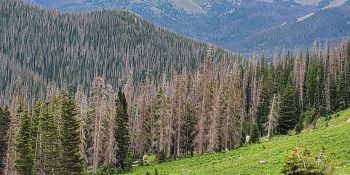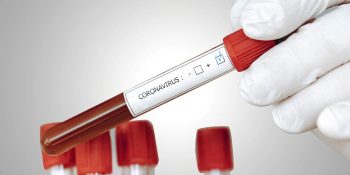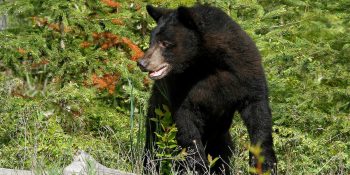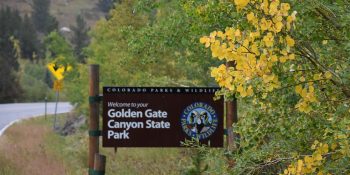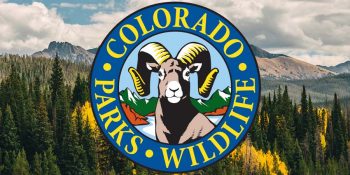FORT COLLINS, Colo. – Colorado Parks and Wildlife biologists are working on a project to obtain population demographic data to effectively and sustainably manage elk herds in Larimer County.
Portions of the project were made possible thanks to funding support from the Rocky Mountain Elk Foundation and the Habitat Partnership Program that is funded by revenue from the sale of big game licenses.
Wildlife biologist Angelique Curtis is leading the project designed to help with management decisions for the elk herd in Data Analysis Unit (DAU) E-4.
It specifically is targeting elk in Red Feather Lakes and the Poudre Canyon geographic areas. Crews will deploy 30 GPS satellite collars on cow (female) elk to assist in data collection and help with monitoring the herd.
“The goal of this study is to get an understanding of migrational movements of the E-4 elk and gather herd composition data to better model the dynamics of the population for sustainable harvest,” Curtis said. “The collared cow elk will be used as ‘judas’ elk to perform aerial surveys for annual classification data. In this instance a ‘judas’ animal is the cow elk that we can locate from the collar that will lead us to the herd where we can then classify the whole herd.”
The GPS collars will provide enough data in the first three years of deployment to design a population model for the herd. The study will last four to five years, with the remaining data collected after year three from the collars being used to refine the parameters of the model.
Deployment of the collars started last summer by trapping or ground darting elk in the Comanche Wilderness Area. Helicopter capture was also used this past winter to deploy additional units. The few remaining collars will go out late this month via ground darting and trapping.
Collars are spatially distributed in selected geographical areas to get a representative sample of the herd. The GPS collars will give location data every 13 hours to get a rolling time frame of movements throughout the year.
“The locations are transmitted to the biologists computers and phones, so they reduce the time needed to track the animals,” Senior Wildlife Biologist Shannon Schaller said. “This also ensures we collect data in remote areas. If a collared elk stops moving for more than eight hours, it will emit a mortality signal that biologists can attempt to retrieve to help them understand mortality causes.
“This technology has been a real benefit for wildlife biologists to collect data more efficiently.”
Wildlife managers need the new data to make informed recommended license allocations for hunters, as to date there is not much known about the elk in the DAU.
Previously, hunter harvest and voluntary elk tooth submissions from 2009 to present provided data on the herd composition (sex and age) to make harvest recommendations. The last aerial survey of the elk in the DAU was in 2006.
In 2014, estimated elk populations obtained from ground surveys reached the upper end of the management objectives – the herd size was increasing past the point of the carrying capacity the landscape would support. Thus, both bull and cow elk license numbers increased to help the herd stay within the management objective. Wildlife managers are seeking better data on herd trends to assess harvest limits to align with new population models.
Starting this December, Curtis along with wildlife officers, will conduct aerial surveys to gather baseline data using the GPS collars to locate the elk.
Once more data is compiled, the new population matrix model will be built with an understanding of the areas of greatest conservation, migration corridors, calving areas and habitat enhancement opportunities all designed to keep the elk herds healthy and within the management objectives.
SPREAD THE NEWS
COMMENT, Like, Follow & SHARE @I70Scout
CURRENT EDITION
WEATHER & TRAFFIC PUZZLES RECENT NEWS ADVERTISE WITH US
